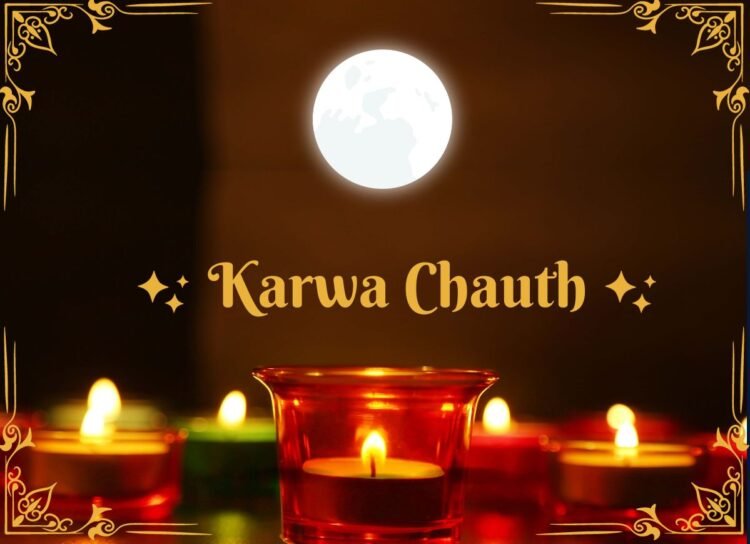Karva Chauth is a Hindu festival that celebrates the bond of love and devotion between married couples. It is observed by women who fast from sunrise to moonrise for the well-being and longevity of their husbands. It is also celebrated by unmarried women who pray for a desired life partner. The festival falls on the fourth day of the dark fortnight (Krishna paksha) of the month of Kartik, which usually occurs in October or November.
What is the meaning and origin of Karva Chauth?
The word Karva Chauth is derived from two words: Karva, which means an earthen pot with a spout, and Chauth, which means fourth. The earthen pot is used to offer water to the moon as part of the ritual. The festival is also known as Karaka Chaturthi in Sanskrit scriptures.
There are different legends and stories associated with the origin of Karva Chauth. One of them is that it began as a prayer for the safe return of the husbands who went to fight wars in far off lands. Another one is that it coincided with the end of the harvest season and the storage of wheat in big earthen pots called karvas. A third one is that it is based on the mythological tale of Savitri and Satyavan, in which Savitri brought back her husband from the clutches of death with her prayer and determination.
What are the main characteristics and rituals of Karva Chauth?
Karva Chauth is celebrated with great enthusiasm and fervor by women across Northern and Western India. Some of the main characteristics and rituals of the festival are:
- A day before Karva Chauth, women receive gifts from their mothers or mothers-in-law, which include clothes, jewelry, sweets, fruits, coconut, sindoor (vermillion), and mehndi (henna).
- On the day of Karva Chauth, women wake up before sunrise and eat sargi, a meal prepared by their mothers-in-law, which consists of fresh fruits, dry fruits, sweets, chapatis, and vegetables. They also drink kachi lassi, a mixture of milk and water.
- After eating sargi, women observe a strict fast throughout the day, without drinking water or eating anything. They also dress up in their bridal attire or new clothes and adorn themselves with jewelry and mehndi.
- In the afternoon or evening, women gather together with their respective thalis (plates), which contain coconut, fruits, dry fruits, a diya (lamp), sweets, mathri (a fried snack), and gifts for their mothers-in-law. They also carry a sieve or a chalni to view the moon later.
- Women listen to the vrat katha (the story of the fast) narrated by an elderly woman or a priest. They also sing songs and exchange karvas (earthen pots) among themselves.
- After sunset, women wait for the moon to rise. When they see the moon through a sieve or a chalni, they offer water to it and pray for their husbands’ health and happiness. They also look at their husbands through the sieve or chalni and receive blessings from them.
- Women then break their fast by eating food prepared by their husbands or families. They also receive gifts from their husbands as a token of love and appreciation.
What is the role and impact of Karva Chauth on married couples?
Karva Chauth is a festival that strengthens the bond of love and devotion between married couples. It is a way of expressing gratitude and respect for each other’s sacrifices and commitments. It is also a way of seeking divine blessings for a long and happy married life.
Some of the benefits of observing Karva Chauth are:
- It enhances mutual trust and understanding between spouses.
- It fosters emotional intimacy and closeness between spouses.
- It boosts self-confidence and self-esteem among women.
- It promotes health and wellness among both partners.
- It creates a festive atmosphere and joy among families and friends.
Conclusion
Karva Chauth is a festival that celebrates the essence of marriage and showcases the beauty of Indian culture. It is a festival that honors the sanctity of marital vows and reflects the values of faithfulness, loyalty, dedication, and devotion. It is a festival that brings happiness and harmony among couples and society at large.
Also Read: Essay on Karva Chauth for Students







